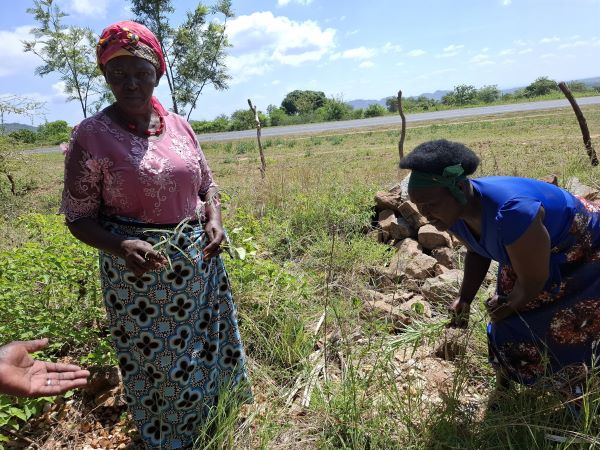Farming communities in Kivaa ward, Masinga constituency have reverted to traditional seeds system to preserve their long held heritage of sustaining the production of indigenous nutritious crops that sustained their chain supply for ages
Based some 108 KM from Capital city of Nairobi, the farmers are promoting traditional seed systems to retain and protect the original genetic composition of the nutritious food crops which the community has been for ages cultivating on their farms.
The small holder farmers who have devised a local seed banking and storage system have partnered with Via- Mweki group from Kivaa , Machakos to preserve the indigenous seeds for posterity because they had over the years proven to be drought tolerant in the arid area.
The Women who form at least 50 percent of the group that started in 2008 have since gained knowledge on selection of quality seeds and best farming practices to avert cross pollination to retain their original traits.
Agnes Mutiso a member of the Via Mweki group told Kenya News agency that they have been the custodians of indigenous seeds and had over the time established solutions to the challenges of food security facing the area by applying prudent farming systems.
“Indigenous seeds are naturally adapted to local environments and have high nutritional value, they are resilient to climate change, resilient to threats arising from pests, disease and drought but also mature faster and that is why our group ensures we meet often to learn and exchange various seeds”, she said.
She explained that through Institute for Culture and Ecology (ICE) a non-governmental organization that works with community groups to promote environmental conservation and Natural resource management training has been supporting them with indigenous seed varieties of sorghum, millet, green grams and pigeon peas which do well in their soils.
“Since discovering that the various cereal crops are what we need to sustain our food systems, households have been able to have food and also be economically empowered through sales after good harvests”, Mutiso.
Esther Mwonga, another member of the Via Mweki says that the group has now expanded the scope as women in the group have put up farmers community seed learning Centre where they meet and call upon other farmers especially the youth from the area to come and learn on seeds and also agroecology.

Apart from the cereals that the group has been growing, she added that they are engaged in propagation of arrow roots, cassava, yams, sweet potatoes and indigenous vegetables which ICE has been encouraging them to grow and even supporting them with the seeds.
“I can proudly say that, I never miss a harvest when I plant indigenous seeds whether it rains or not”, Ndunge said
Most people, she noted, had forgotten about the Cassava production after losing the species that was grown by their folk’s long time ago, but through the knowledge received and sharing of seeds, they have been able to regain the species and are growing it.
Kivaa ward which is in the vast Machakos region and where rain is not consistent has seen farmers moving towards practicing organic agriculture and planting drought resistant crops that only require little rainfall.
ICE has been spearheading agroforestry, and recuperation and multiplication of indigenous seed varieties main of traditional food crops and according to Martin Muriuki, the Executive Director, they have been working with small scale farmers and farmer groups ton restore back lost indigenous and traditional varieties of seeds to increase agricultural productivity.
“In a semi-arid area like Kivaa, we have been promoting seed sharing among members of farmer groups and this has seen them embrace growing various crops in their farms and be able to stock seeds at household levels”, he noted
Muriuki called on the government and also counties to come up with policies to protect farmers Rights, access to indigenous seeds and also support farmer-managed seed systems because they have the capacity and knowledge to nurture indigenous seeds.
Experts have been calling for protection of food systems by asking government to certify seeds that farmers can grow on their farmers so as to avert the distribution of non-certified seeds which can be detrimental to already the fragile food system.

The government through KALRO has also been operating the Genetic Resources Research Institute (GeRRI), which seeks to safeguard traditional seeds and prevent the loss of genetic resources. The gene bank has over 50,000 plant varieties.
Statistics from the Kenya Plant Health Inspectorate Service (KEPHIS) indicate that the informal (indigenous) seed sector in Kenya accounts for between 60-70 percent of seeds planted by farmers across the country.
Seed systems in Kenya are broadly categorized into two types, formal and informal (indigenous) which involve individual small-scale farmers or groups of farmers from communities producing seed for their own use.
The Institute for Culture and Ecology (ICE) is a partner of ABN collaborating in building Resilient communities in Kenya.
By Wangari Ndirangu


